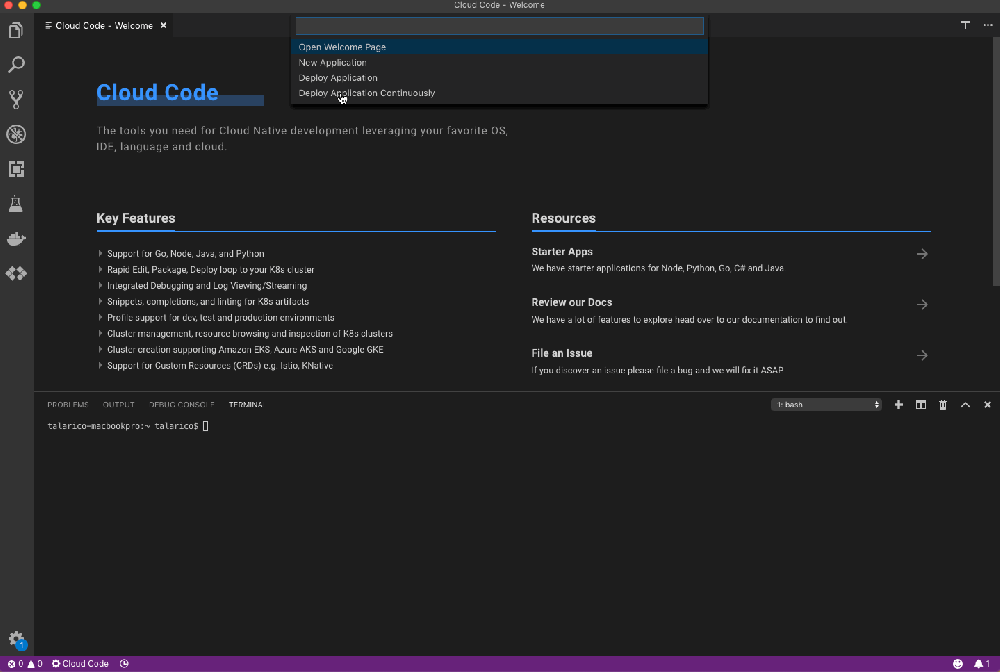Recently at Google Cloud Next 2019, Google introduced a new developer tool called Cloud Code. With Cloud Code, developers will get a set of plugins for development environments like JetBrains IntelliJ Idea IDE and Microsoft's Visual Studio Code editor.
Google Cloud Code is in a beta release stage for Visual Studio Code and alpha stage for IntelliJ. Google’s intention with Cloud Code is to accelerate the development lifecycle of applications in the cloud. Therefore, Google’s focus is to make it easier to develop applications that run on Kubernetes, including Google Kubernetes Engine (GKE).
With Cloud Code, developers get a series of open-source command-line container tools including Kubectl, the command-line tools for working with the Kubernetes API; Jib, for building containers for Java applications; and Skaffold, for setting up the continuous deploying pipeline for Kubernetes applications. Furthermore, developers will get constant feedback on their projects when building it. The plugins extend the local edit-compile-debug loop to any local or remote Kubernetes environment. Also, both plugins support Java, Node.js, Go, Python, and .NET Core.
Google’s Cloud VP of product and design Pali Bhat said in a TechCrunch article about Cloud Code:
This essentially gives you turbocharged, cloud-native app development, right in your IDE. It brings remote app development right into your developer loop right in the IDE. This unlocks the power of all of these developers and lets them build for Kubernetes, build for cloud-native, without having to worry about all of the different pieces that they had to learn.

Source: https://9to5google.com/2019/04/10/google-cloud-code-plugin-vs-code-intellij/
Another benefit developers will have with Cloud Code is the easy integration with existing Google Cloud DevOps tools and services such as Cloud Build and Stackdriver. A developer can, for example, once their code is ready to deploy, create a pull request or commit, which will trigger Cloud Build to build, test, and deploy their application automatically. Furthermore, Cloud Code also provides templates, linting, error highlighting for Kubernetes YAML files, and support logging – a developer can view application logs from any environment directly in their IDE.
Lastly, according to a blog post by Sean McBrean, product manager, Google Cloud on Cloud Code the operations will be easier too:
A core tenet of DevOps is to use "infrastructure as code" in which all environment configurations are managed as source code in a repo. This makes environments reproducible and helps find errors sooner. Cloud Code and Cloud Build make editing, reviewing, testing, and applying changes to a Kubernetes config easy and convenient. Cloud Code provides templates, linting and error highlighting for Kubernetes yaml files. Of course Cloud Code also supports logging, so you can view application logs from any environment directly in your IDE.
Developers can now start using Cloud Code and get the plugins from Google Cloud or the IDE’s extensions marketplace.

